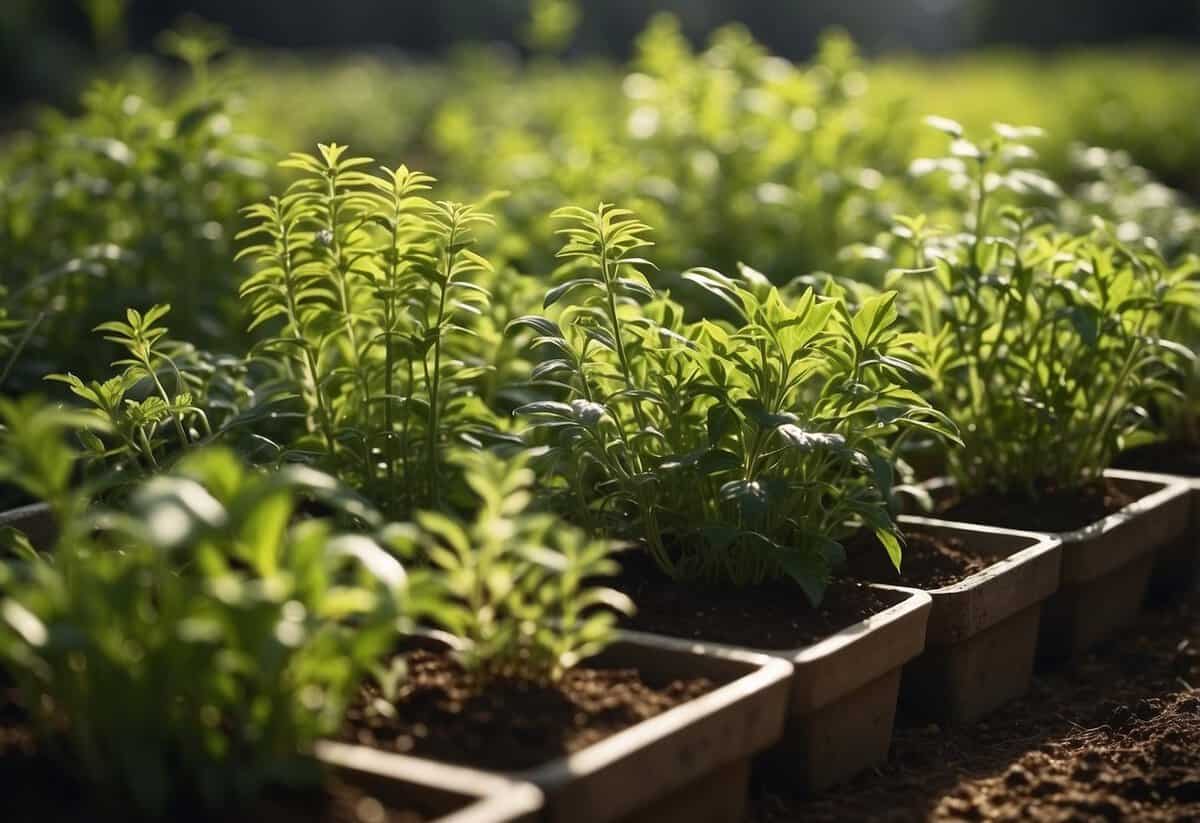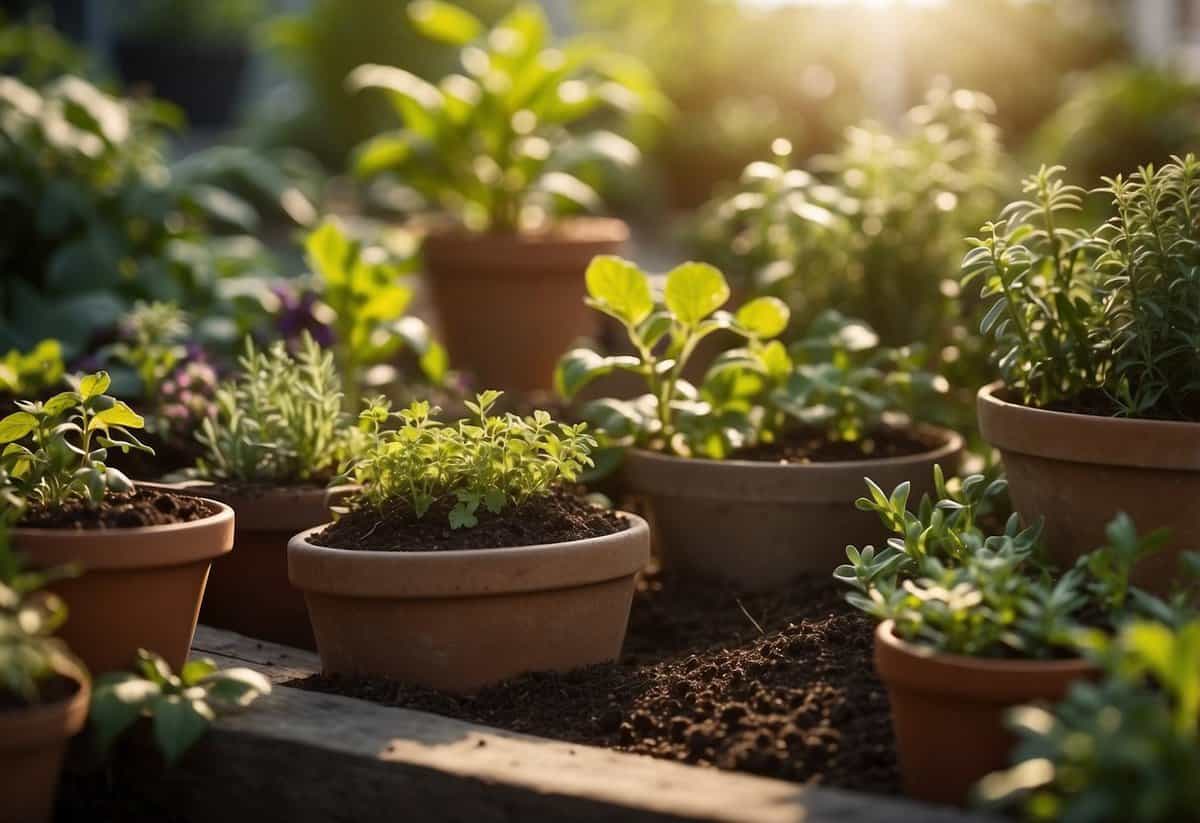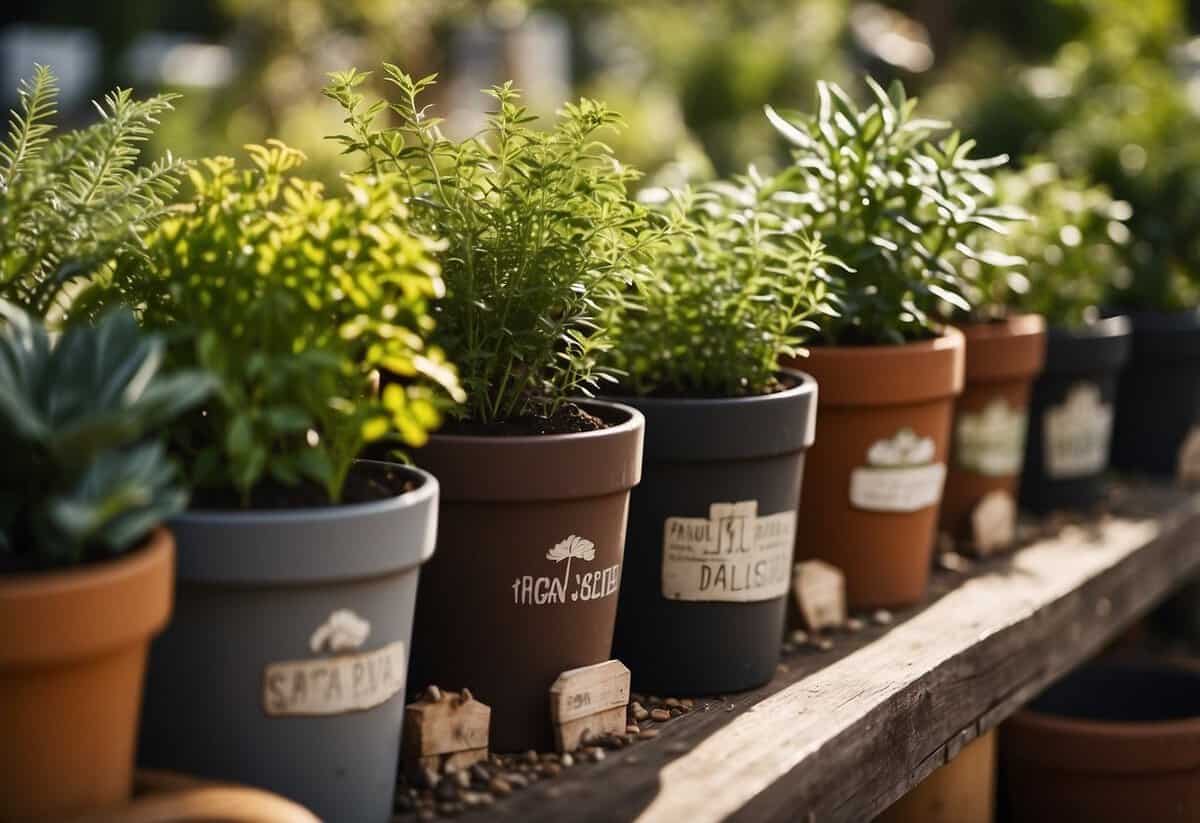Herb Garden Tips: Simple Steps for Fresh Flavor
Growing your own herb garden can be a fun and rewarding experience. Whether you are a beginner or an experienced gardener, having fresh herbs at your fingertips adds a special touch to your cooking and living space. Plus, many herbs are easy to grow and care for, making them perfect for anyone wanting to start gardening.

Why should you start an herb garden? The benefits are plentiful, from saving money on store-bought herbs to enjoying the convenience of having fresh herbs whenever you need them. In this article, you’ll find simple tips and tricks to help you create a thriving herb garden, no matter the space you have available.
1) Start with Quality Soil

Your herb garden’s success starts with the soil. Good soil provides nutrients and supports healthy plant growth.
Choose well-draining soil rich in organic matter. This helps avoid waterlogging and ensures your herbs get essential minerals.
Mix compost or aged manure into your garden bed. This improves soil structure and adds nutrients your herbs will love.
2) Choose the right location

To grow a successful herb garden, pick a spot that gets plenty of sunlight. Most herbs need at least six hours of direct sunlight a day.
Make sure the soil drains well. Standing water can harm your plants’ roots. If you’re growing herbs indoors, place them near a sunny window.
If you’re placing the garden outside, select an area close to your kitchen for easy access while cooking. Doing this ensures that you get the most out of your herb garden.
3) Label Your Herbs

Keeping your herbs organized can be simple and fun. Use stylish herb garden labels to help you know which plant is which. This can make gardening easier and more enjoyable.
You can create your own labels using popsicle sticks, chalkboard paint, or even old spoons. Get creative and personalize your garden!
4) Regular Pruning

Pruning keeps your herbs healthy and productive. It helps prevent plants from getting too tall and spindly.
For instance, pruning promotes new growth by cutting back the top 2 to 3 inches of stems on herbs like rosemary. This encourages a bushier plant.
Use sharp scissors or shears. Regularly removing dead or yellow leaves also keeps your herbs in top shape.
5) Water wisely

Watering your herb garden the right way can make a big difference. It’s best to water your herbs in the early morning. This helps the roots grow strong and deep.
Use direct watering by aiming water at the base of the plants. This prevents the leaves from getting wet, which can cause fungus.
Try to cater to the specific needs of each herb. While basil might need more frequent watering, thyme can thrive with very little. Check the soil regularly. If it feels dry, it’s time to water.
Mulching around your plants helps keep the soil moist longer.
6) Use mulch to retain moisture

Mulch can help keep your herb garden’s soil moist. It works by reducing evaporation from the soil.
Using mulch also keeps the roots of your herbs cool and prevents them from drying out. This is especially important during hot weather.
Try using organic mulch like straw or wood chips. It’s easy to apply and can improve soil health.
For more ideas and how to choose the best mulch, visit Bob Vila or HGTV.
7) Rotate your herbs

Rotating your herbs helps them grow strong and healthy. When you plant herbs in the same spot every year, they can suffer from soil depletion and diseases.
By changing their location, you give the soil a chance to recover and improve its nutrients. Plus, rotation can help reduce pests that target specific plants.
Make sure to keep track of where you’ve planted each herb so you can rotate them effectively. This simple step can lead to a more vibrant and productive herb garden.
8) Control pests organically

Use garden forks to aerate your garden beds without damaging the soil. Keep your soil covered with mulch or a living ground cover. This not only prevents weeds but also stops soil erosion.
Maintain a clean garden by removing leafy debris, dead plants, and decaying material. This helps deter pests naturally.
Insecticidal soap can be effective. It targets the protective coating of insects, leading to dehydration. Consider using BioAdvanced Organics Brand Insecticidal Soap.
9) Harvest Herbs Correctly

Harvesting herbs at the right time keeps your plants healthy and ensures you get the best flavor.
For leafy annual herbs like basil, pinch off leaves from the tips of stems. This encourages more growth.
For leafy perennials like sage or thyme, remove longer stems. Cut stemmed herbs such as rosemary or parsley at the base for best results.
Learn more about herb harvesting techniques to keep your garden thriving.
10) Use Companion Planting

Companion planting can help your herb garden thrive. By placing certain herbs next to each other, you can repel pests and attract beneficial insects. For example, lavender helps keep moths away from cabbage and cauliflower.
Planting basil with oregano can keep aphids at bay and enhance each other’s flavors. Try growing dill near cabbage to repel cabbage moths and spider mites.
Choosing The Right Herbs

Selecting the right herbs for your garden depends on your climate, location, and personal preferences. By understanding these key factors, you can ensure a thriving and productive herb garden.
Consider Climate And Location
Your climate and garden location play a major role in herb selection. Some herbs prefer full sun, while others thrive in partial shade. Ensure your garden receives at least six hours of sunlight daily.
Beyond sunlight, consider your local weather. Mediterranean herbs like rosemary, oregano, and thyme love hot, dry conditions. In contrast, herbs like parsley, chives, and mint do better in cooler, moist environments. Whichever herbs you choose, make sure your soil has good drainage to avoid waterlogged roots. This can be achieved by adding compost or sand to the soil where needed.
Popular Herbs For Beginners
For your first herb garden, start with easy-to-grow varieties. Basil, one of the most popular culinary herbs, thrives in warm climates and full sun. Mint is another great choice, but it can quickly spread, so plant it in a container to control its growth. Parsley is versatile and can grow in different conditions, from full sun to partial shade.
Thyme is a hardy perennial that can survive in dry, poor soil. Chives are useful in many dishes and are simple to grow from seeds or starter plants. Sage is another good beginner herb, valued for its culinary and medicinal properties.
For more information on starting your herb garden, check out these herb gardening tips.
Planting And Soil Preparation

To start your herb garden successfully, first, take time to prepare the soil. Planting techniques matter, too. Correct soil and planting methods ensure healthy herbs.
Preparing Your Soil
Proper soil preparation creates the foundation for healthy herbs. Start by clearing any debris like rocks and weeds. This helps the herbs’ roots grow without obstacles. Work the soil to a depth of about 12 inches (30 cm). For the best results, mix garden soil with sand or moss, making it well-draining.
Good drainage prevents root rot, which is common in herbs. For a raised bed, combine two parts compost with one part coarse sand and one part potting soil. This mix balances drainage and moisture retention. Finally, rake the soil smooth and water it lightly before planting.
Planting Techniques
After preparing the soil, it’s time to plant your herbs. Dig holes twice the size of the plant’s root ball. Remove the plant from its pot, gently loosen the roots, and place it in the hole. Fill in with soil and pat gently to secure the plant.
Spacing is crucial to prevent overcrowding. Most herbs need about 12-18 inches (30-45 cm) of space. This ensures each plant gets enough sunlight and water. After planting, give your herbs a good drink of water. Maintain a regular watering schedule to keep the soil consistently moist but not waterlogged.
Herb Garden Maintenance

Keeping your herb garden healthy involves regular watering, monitoring for pests, and maintaining overall plant health. Your herbs will thrive with the right care and attention to detail.
Watering Tips
Herbs need the right amount of water to grow well. Herbs in containers tend to dry out faster than those planted in the ground, so you need to water them more often. When the weather is hot and dry, increase the amount of water you give your plants.
Check your herbs daily for signs of wilting, as this indicates they need water immediately. Overwatering can be a problem too, especially for herbs like lavender or rosemary, so make sure the soil has good drainage.
Mulching around herbs can help retain soil moisture. Use organic mulch such as straw or compost. Always water your herbs early in the morning to limit water evaporation and help prevent fungal growth.
Pest Control
Pests can damage your herb garden if not managed properly. Common pests like aphids, whiteflies, and spider mites can infest your herbs. Inspect your plants regularly to catch infestations early.
Use natural pest control methods whenever possible. Neem oil or insecticidal soap can effectively manage most pests without harming your plants. For a more hands-on approach, you can remove pests by hand or spray them off with a strong stream of water.
Encourage beneficial insects like ladybugs or lacewings in your garden. They can help control pest populations naturally. Planting companion plants like marigolds can also deter harmful insects and keep your herbs safe.







